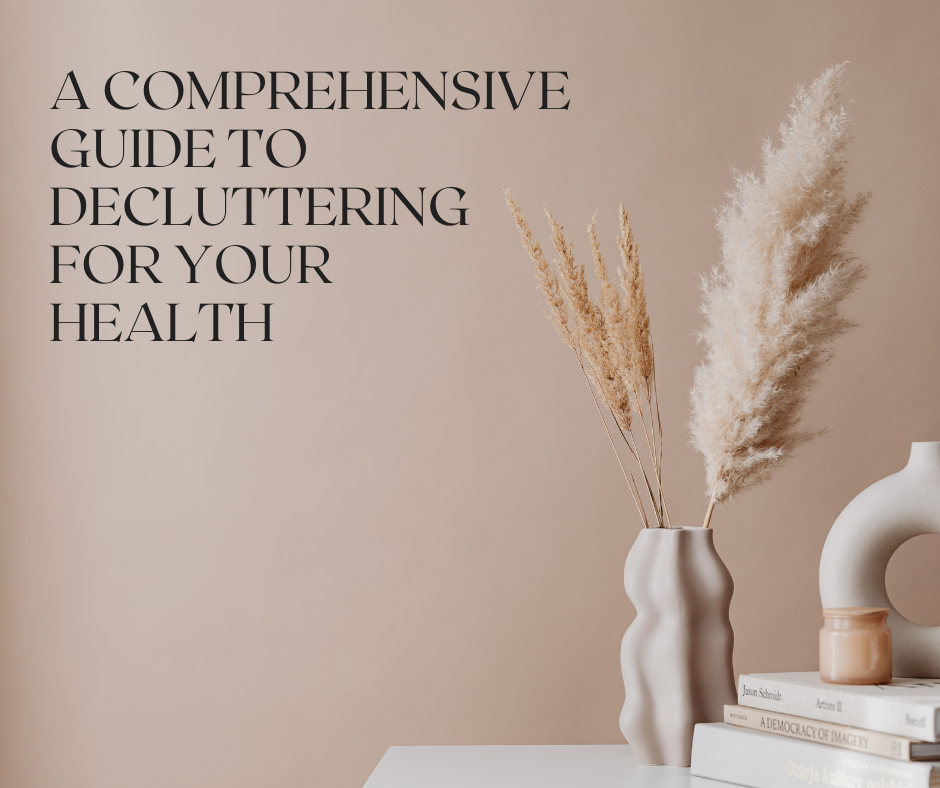Decluttering is the act of returning things to their proper place and getting rid of things that you don’t need. As the famed Marie Kondo says, decluttering is getting rid of everything that doesn’t spark joy when you touch it. If it doesn’t actively make you feel happy and/or healthy, it has no place in your life!
Why is Decluttering Good for You?
You’d be surprised to know that decluttering has several health benefits. Who knew that having a great home or workplace led to great health and well-being? But the evidence doesn’t lie, so let’s take a look at them below.
1. It Prevents Accidents and Injuries
If the clutter in your home has gotten to a point where you risk toppling over or slipping on something, or if the clutter in your home is a haven for pests like cockroaches and rats, then it’s a good sign that your home needs decluttering. Your home should be a safe space and not a place where you can easily get sick or injured!
On top of that, clutter can be very contentious. Other people in the household could get frustrated with you for not being tidy and organized. You or your loved ones would probably feel embarrassed about having people over to visit. This leads you to become isolated and/or live in a tense environment.
Decluttering is good for both your physical and mental health!
2. It Helps Us Destress and Feel More Comfortable in Our Home
And speaking of mental health, one of the symptoms of depression among people who suffer from depression is disorganization. When their mind is suffering, the environment they live in reflects that in the way they forget to clean their rooms, leave things lying around messily, leave food out in the open, or wear an outfit that is less than stellar.
In the same way, having a messy environment can also make you feel bad. You feel so bad about how messy your home is and how much cleaning you have to do that you end up feeling overwhelmed and not cleaning your home. Then the cycle continues until clutter piles up!
Decluttering is beneficial because it changes the way you live. It brings back some semblance of control by getting rid of things that make you unhappy and putting things back where they belong. The process of decluttering is also peaceful in itself—just getting lost in the moment of getting rid of stuff is very therapeutic!
3. It Makes Us More Productive and Improves Concentration
The more comfortable you are in your home or workplace, the more your mind starts to heal itself. It no longer is worried about being in an unsafe environment and can focus on other tasks at hand like school and work. Indeed, don’t you always feel much better when you’re working in a clean environment rather than an environment with lots of distractions? Isn’t being in a workplace that’s wide and clean better than a workplace that’s cramped and stuffy?
Productivity isn’t just about willpower, folks. It’s also about the environment you’re in!
How Much Should We Declutter?
Minimalism has been a trend in recent years, so some people like the idea of having nothing but the bare minimum in their homes. But little trinkets and knick-knacks are also good for the soul of people who enjoy them, so who’s to say that they are worthless?
Essentially, how much you should declutter is entirely up to you—whatever makes you happy and healthy within reason.
When Does Decluttering Become Unhealthy?
Decluttering starts becoming bad for you when it’s the only thing you can do. If it interferes with other aspects of your life, then it’s a nuisance. For example, if you’re so focused on decluttering that you end up being distracted at work, forgetting to eat, or ignoring your loved ones in the household, then you’re hurting yourself more than helping!
Decluttering also becomes unhealthy when it starts affecting other people. Sure, you might want to live in a space that’s clean and organized, but your spouse or family member might be completely fine living with a bit of clutter. You don’t have a right to reorganize their stuff or throw something of theirs just to satisfy your decluttering instincts.
Let decluttering be a hobby—not an unhealthy obsession.
